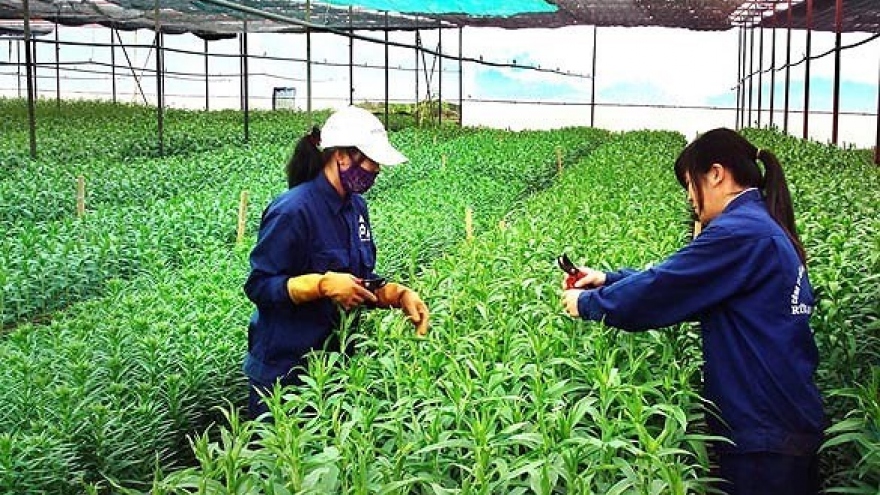Vietnam mulls solutions to encourage organic agriculture
The legal framework on supporting agricultural enterprises to shift to organic production has been set up, but this is not enough to kickstart the industry.

Lacking capital
The Ministry of Science & Technology (MST) in April 2018 issued Vietnamese standards for the production, cultivation, husbandry, processing and labeling of organic agricultural products. It is expected to cause a breakthrough in organic agriculture production in Vietnam.
Vo Minh Khai, director of Vien Phu Company in Ca Mau province, said the standards allow producers to know which requirements they have to meet in order to label their products as ‘organic’.
However, Khai still is worried as he wonders about standards recognized in the world. It is easier to sell organic products in Vietnam, according to Khai. The only thing producers need to do is persuade consumers.
Khai suggested that Vietnam work with other countries for the mutual recognition of each other’s standards.
The government has set policies on providing preferential capital to encourage investment in agriculture and rural development. However, the policies still cannot help.
Khai complained that his company still cannot access loans. “There are many policies, but it still depends on how the policies are brought into life,” he said.
The government has released Decree 57/2018 encouraging businesses to invest in agriculture, which will bring great opportunities to “clean” agriculture and organic production. However, it’s still unclear how the resolution will be implemented.
An analyst commented that in some cases, the government sets up policies, but resources are insufficient to follow through on the policies.
Decree 210/2013 on encouraging investment in agriculture and rural areas mentions an interest rate subsidy and stipulates that localities need to arrange their resources to implement the policy.
However, 12 out of 13 localities cannot do this because of limited resources.
Organic production
Ho Quang Cua, director of Ho Quang Private Enterprise, believes that organic agriculture is a growing trend in the world, but it has been developing slowly in Vietnam.
Organic agriculture remains an unfamiliar concept for the majority of people. Only when media can help improve people’s awareness will farmers make higher investments in organic agriculture production.
Meanwhile, Khai of Vien Phu Company commented that organic agriculture goes fast or slow depending on consumers’ needs.
Vietnam’s agriculture shifted to intensive farming years ago, striving for high yields.
Therefore, infrastructure was designed in a way to reach that goal. Now, if Vietnam wants to switch to organic farming, it needs to change the infrastructure again.



